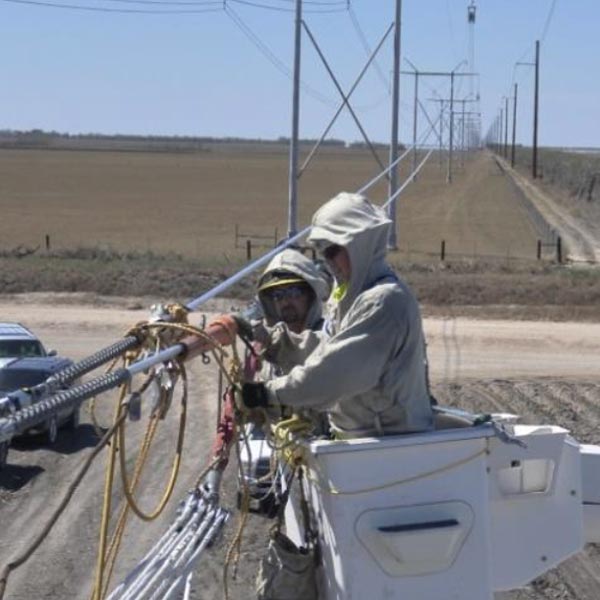By Ted Caddell and Rich Heidorn Jr.
FERC on Tuesday cast shade on an attempt by environmentalists and solar proponents to block NorthWestern Energy from cutting the prices for solar qualifying facilities in Montana.
But the commission’s procedural ruling didn’t address the merits of complaints that Montana regulators are attempting to discourage solar developers — a claim it will address in a separate docket.
The complaints were filed in response to the Montana Public Service Commission’s 3-2 ruling in June to suspend NorthWestern’s tariff for solar QFs larger than 100 kW under the Public Utility Regulatory Policies Act pending an updated rate review.
The commission acted after the utility sought emergency action, saying it feared a “flood” of QF filings because the rate — set in 2013 at $53.14/MWh (off-peak) and $92.37/MWh (on-peak) — was now 35% above its avoided costs (Docket No. D2016.5.39).
The change put about 130 MW of planned solar facilities in Montana in limbo. While the commission said solar projects could negotiate rates with NorthWestern while the review is pending, developers say they have no leverage and would be forced to accept the utility’s avoided cost figure.
FERC dismissed a complaint by the Vote Solar Initiative and the Montana Environmental Information Center, saying the PSC is not subject to the general complaint jurisdiction under Section 306 of the Federal Power Act and that the plaintiffs had no standing to file a complaint seeking PURPA enforcement (EL16-117).
“The Montana commission is not an entity that, for purposes of enforcement, [FERC] may, by order, require to take or not take particular actions,” FERC said. “Additionally, Vote Solar is neither a QF nor an electric utility, and as such is not authorized to file a petition for enforcement pursuant to Section 210(h) of PURPA.”
Jenny Harbine, an attorney with Earthjustice, which represented the complainants, called the decision disappointing. “It limits the ability for advocacy groups — including consumer advocates as well as clean energy advocates — to raise issues before FERC that are critical to the future of clean energy development and consumer choice,” she said.
Second Case Pending
But Harbine said the groups would participate as intervenors in a PURPA enforcement petition filed last month by FLS Energy, a North Carolina-based solar developer.
FLS said the Montana PSC’s actions “precluded [it] from continuing with the development of 14 advanced-stage solar QFs” and faces the loss of more than $750,000 that it has invested (EL17-5). The company said the order eliminated NorthWestern’s only PURPA tariff allowing for fixed, long-term payments for solar, which it called an “essential element of a financeable” power purchase agreement.
The developer said the commission’s order — which followed a hearing in which only the utility gave testimony and was not subjected to cross examination — is intended to discourage the development of small solar QFs.
“The Montana PSC performed a back-of-the-envelope calculation and suspended the rates based on an initial conclusion (untested by discovery or opposing testimony),” FLS said.
It said the commissioners’ “hostility towards the goals of PURPA is evident from statements made by a majority of the commissioners” at hearings in the NorthWestern case and in an editorial by Commissioner Brad Johnson, who accused solar developers of using PURPA to finance projects, “cherry picking the states with the highest government-assured rate to do business in.”
“Simply put, it was well past time to put the rate on pause and update it again,” Johnson said, noting that the Montana Consumer Counsel supported NorthWestern’s request for the suspension.
Dissent
In his dissent, Commissioner Travis Kavulla accused his colleagues of flouting the commission’s procedures and precedents.
“The intervention deadline to the proceeding occurred only after a hearing on NorthWestern’s motion was held. Certain parties — or rather, quasi-parties, since the intervention deadline had not arrived — participated in that hearing, but the developers of the projects that would be compensated under the rate schedule did not,” wrote Kavulla, the current president of the National Association of Regulatory Utility Commissioners. “The hearing commenced with the purpose of taking ‘argument’ on NorthWestern’s motion. Then, as a surprise to those in attendance, counsel for NorthWestern alerted the commission that it also wished to offer evidence. No other quasi-party presented evidence at this hearing.”
On Wednesday, FERC granted Montana regulators’ request for more time to respond to the petition, extending the deadline until Nov. 17.
Other States
Utilities in other states also are trying to limit PURPA payouts. Idaho, for instance, has limited such solar QF contracts to two years only in a 2015 ruling. Duke Energy is contemplating a similar move against solar QF rates in North Carolina, according to Vote Solar.




